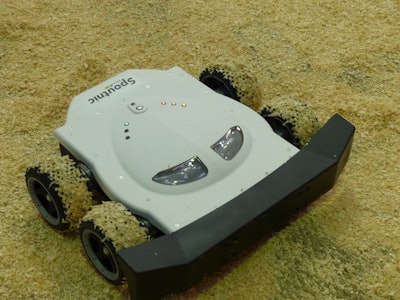
We always think that robots are things of the future that are only seen in the movies. But ladies and gentlemen, they have arrived and are actively working in poultry farms.
Of course, they don't look like the famous robot from Lost in Space, nor do they speak with an electronic voice. However, they do move around and in a constant and specific way, they do the cleaning, disinfection, spray vaccinations and help to monitor that hens do not lay eggs on the floor.
These new developments were seen at the SPACE 2017 animal production show, which took place September 12-15 in Rennes, France. When talking with the companies that make these robots, they told us that SPACE was where they made the official introduction and made available for immediate sale.
Behind all this technology is the goal of improving efficiency. For example, the robot that cleans and sanitizes poultry houses, produces a map indicating where it has already done its job and where it hasn’t and is proving to be far more reliable than a worker's word on the whether the job has been done satisfactorily.
The robot moves constantly to encourage birds to walk and move, trains hens to not lay eggs on the floor and climbs into their nests. In addition to constantly moving around the poultry farm, it emits light and sounds or music if desired, autonomously and constantly.
Another important aspect is the step taken in the biosecurity of the farm, because there is less human presence in contact with the birds. However, a common denominator was the welfare of the human being, i.e., in addition to efficiency in poultry production, one of the reasons is to prevent the worker from being immersed in the unhealthy environment with dust from the poultry houses, from crouching down hundreds of times to collect eggs and walking miles daily inside the farm.
Frankly, I was struck by this issue of human well-being, because I think little is thought of it when new things are invented. What do you think?

















